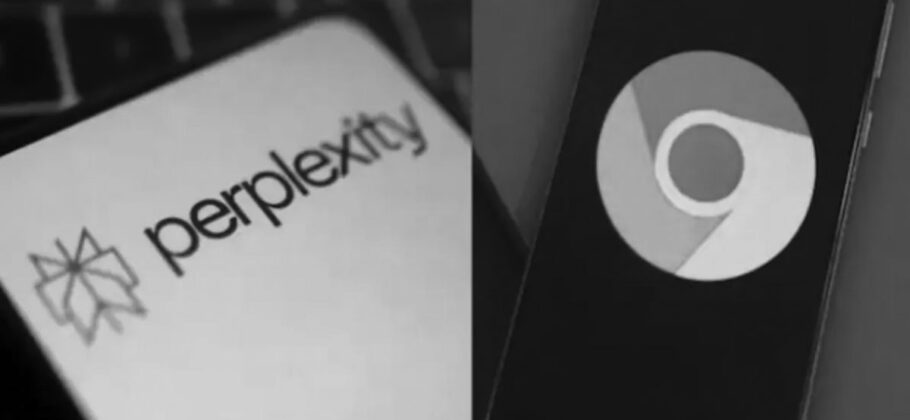A Young Challenger with Big Ambitions, Perplexity is a three-year-old artificial intelligence startup founded in 2022 by former OpenAI researcher Aravind Srinivas along with other AI experts. The San Francisco–based company has quickly gained attention for its AI-powered “answer engine,” which responds to queries with direct, conversational answers instead of long lists of links. Backed by heavyweight investors such as Nvidia and SoftBank, Perplexity has raised roughly $1 billion in funding and was valued at $18 billion earlier this year.
In May alone, Perplexity handled over 780 million user queries, with its search products growing at a rate of about 20 percent month over month. The company operates on a hybrid model: free access to basic AI features, paired with a premium subscription called Perplexity Max for advanced tools, faster results, and early access to new products.
When asked about the company’s approach, Srinivas explained, “We are not just building another chatbot. We are creating an AI-native platform that works on your behalf—constantly.” This vision of a more proactive, automated internet is central to its most daring move yet.
A Bold and Unlikely Offer for Chrome
On August 12, Perplexity stunned the tech industry by making an unsolicited $34.5 billion all-cash offer for Google Chrome, the world’s most widely used web browser. “Our offer is designed to satisfy an antitrust remedy in the highest public interest by placing Chrome with a capable, independent operator,” Srinivas wrote in a letter to Alphabet CEO Sundar Pichai.
The bid comes at a moment of unusual vulnerability for Google. The U.S. Department of Justice recently won a landmark antitrust case against the company, with Judge Amit Mehta expected to decide soon whether Google must divest Chrome. Regulators have argued that separating Chrome from Google Search could be the single most effective way to reduce Google’s dominance in online search, where it currently controls about 90 percent of the market.
Analysts estimate Chrome’s value could be closer to $50 billion, but Perplexity’s offer, though lower, is significant given the startup’s own $18 billion valuation. According to Reuters, “Multiple funds have offered to finance the deal in full,” though the company has not disclosed the backers.
Why Chrome Matters So Much
First launched in 2008, Google Chrome now serves over three billion users worldwide. Built on the open-source Chromium framework, it has become one of Google’s most important tools for gathering user data, delivering targeted ads, and maintaining search market dominance. Barclays analysts estimate Chrome drives roughly 35 percent of Google’s search revenue, making it one of the company’s most valuable assets.
Former NASA architect and cybersecurity CEO Joshua McKenty called Chrome “one of the most powerful sources of new training data in existence—especially if it is decoupled from the Google login experience.” He added that a browser can “travel behind every log-in and every firewall to index… literally everything.” For an AI company, that access could be transformative.
Enter Comet: Perplexity’s Vision for Browsing
Perplexity has already built its own browser, Comet, which the company describes as “an AI-native browser that performs operational tasks, like a silent worker running continuously in the background.” Built on Chromium, Comet can import settings and extensions from Chrome but replaces Google Search with Perplexity’s own answer engine, powered by models like GPT-4o, Claude 4.0 Sonnet, and Perplexity’s proprietary Sonar.
Unlike Chrome, where AI features are add-ons, Comet keeps its AI assistant always visible in the top-right corner. It can summarize articles, compare information across tabs, describe images, perform deep research, and even take actions like booking meetings, unsubscribing from emails, or posting on social media.
This is more than convenience—it’s an entirely different browsing model. As Wichita State professor Usha Haley noted, “A persistent AI assistant that can operate on any web page changes the web from a place to navigate to one that works for you. Adding Chrome’s massive user base and browser dominance could give Perplexity a once-in-a-generation leap in distribution.”
Potentially an Earth-Shattering Shift in Internet Use
If Perplexity were to succeed in acquiring Chrome, the effect on how billions of people use the internet could be immediate and profound. Browsers are the primary gateway to the online world, and shifting the core experience from passive searching to AI-driven, context-aware automation could fundamentally change how people shop, research, work, and communicate online.
Thomas Grange, chief innovation officer at Botify, put it bluntly: “What’s emerging from the blend of AI search and traditional browsers isn’t just a faster search engine, it’s an entirely new hyper-personalized, context-aware, and conversational way of finding information.”
The move could also disrupt Google’s economic foundation. A large share of Google’s advertising revenue depends on the traffic driven by Chrome, and any new owner could reroute that flow. Industry experts say the combination of Comet’s AI capabilities with Chrome’s reach might accelerate the shift away from traditional search altogether. Eric Vaughan, CEO of IgniteTech, argued, “The real disruption here is less about improving search results and more about bypassing websites entirely.”
Obstacles and Rivalries Ahead
Despite the boldness of the offer, most analysts consider it a long shot. Google has given no indication it intends to sell Chrome voluntarily, and even if a court orders divestiture, competitors like OpenAI, Microsoft, Yahoo, and private equity giants are also expected to bid.
Former Google executive Ari Paparo warned, “The DOJ and the courts are not going to blindly empower a new monopoly just to replace the one they are breaking up.” Even with Chrome in hand, Perplexity would still face the massive challenge of scaling to Google’s infrastructure, reliability, and global trust.
The Long Game
Whether or not the deal happens, Perplexity’s bid is already shifting the conversation about the future of the internet. The move signals that browsers—long seen as stable, unchanging tools—are becoming the next battlefield for control of user attention and data in the AI era.
Barry Lowenthal, president of AI-powered ads company Inuvo, summed it up: “Google has been the default search engine for so long it is practically a reflex, but AI-powered search tools like Perplexity are changing that equation. If Chrome joins the mix, the potential reach and usability skyrocket. But becoming the next Google is not just about technology, it is about winning trust, habit, and scale. That is a long game, and right now Perplexity is just starting to play it.”
If regulators clear the way and Perplexity prevails, it could mark one of the most dramatic shifts in the history of the internet—one where the act of browsing transforms from a human-led hunt for information into an AI-led orchestration of tasks, answers, and actions. The change would not be subtle. It would be seismic.











